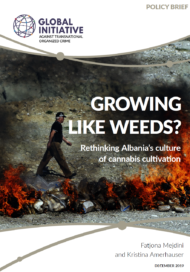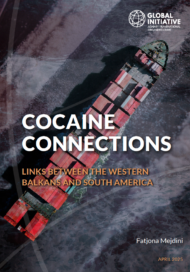Posted on 16 Dec 2019
The cultivation of cannabis in Albania goes back several decades, but experienced a peak around 2016, at which point the police undertook an eradication operation in an attempt to curtail the country’s widespread cannabis production industry. A more recent resurgence in cannabis cultivation, however, points to the fact that the underlying drivers of this illicit economy are still in place. Without a concerted effort to address collusion in the cannabis market and the country’s structural conditions, which entice many young people to seek a livelihood in cannabis production, the conditions that enable the market are unlikely to be disrupted.
Key points:
- The conditions that enable cannabis cultivation in Albania have been in place for many years.
- Despite police crackdowns on cultivation, the phenomenon continues to be pervasive.
- Cultivating cannabis is seen as a source of income for many, particularly the young.
- Colluding state officials are among the drivers of the Albanian cannabis economy.
- A new approach is needed to break the cycle of reliance that the cannabis economy provides and attract young people into legitimate work.
Policy briefs on current issues in the Western Balkans will be published on a regular basis by the Civil Society Observatory to Counter Organized Crime in South-Eastern Europe. The briefs draw on the expertise of a local civil-society network who provide new data and contextualize trends related to organized criminal activities and state responses to them.




